“This has the power to transform cancer treatment across the world”
– Professor Georgina Long AO – Co-Medical Director Melanoma Institute Australia, Joint 2024 Australian of the Year
In what has been described as a cancer treatment revolution, the pre-surgery use of combination immunotherapy looks to become standard treatment for melanoma and impact other cancers across the globe.
Results from the Phase 3 NADINA Clinical Trial, an international collaboration between Melanoma Institute Australia (MIA) and The Netherlands Cancer Institute (NKI), have been released at the American Society of Clinical Oncology (ASCO) Annual Meeting in Chicago and in the prestigious New England Journal of Medicine.
‘The trial results are transformative for not only the treatment of melanoma, but they set the stage and benchmark for other cancers,’ said MIA Co-Medical Director Professor Georgina Long AO, who co-led the NADINA trial with her colleague Prof Christian Blank from The Netherlands Cancer Institute.
‘By showing a significant decrease in the rate of recurrence and death due to melanoma for high-risk Stage III melanoma patients by using combination checkpoint inhibitor immunotherapy before rather than after surgery, we now have the clinical proof needed to change treatment protocols,’ said Prof Christian Blank.
‘This phase III trial is the first of its kind and is one of the single biggest developments, not only in melanoma, but the whole cancer field,’ Prof Long added. ‘Our next step is to refine who gets what immunotherapy before surgery, as some patients will need combination and others will not,’ she said.
The NADINA trial was the first phase 3 trial in oncology evaluating a neoadjuvant regimen consisting of only immunotherapy. It compared neoadjuvant (pre-surgery) treatment with combination immunotherapy (ipilimumab and nivolumab) to the current standard adjuvant (post-surgery) approach with single agent immunotherapy (nivolumab).
The international trial led by MIA’s Prof Georgina Long and NKI’s Prof Christian Blank was opened across the globe including in Europe, Australia and USA. Melanoma Institute Australia opened the trial across 8 Australian centres including MIA, Peter MacCallum Cancer Centre, Westmead Hospital, The Alfred, Tasman Health Care, Lake Macquarie Hospital, Fiona Stanley Hospital and Princess Alexandra Hospital.
Between August 2021 and December 2023, 423 patients were recruited for the trial and randomized to the neoadjuvant arm (212) and the adjuvant arm (211). Australian patients made up a third of all those recruited globally for the trial.
Results showed estimated 12 month event-free survival (EFS) rates of 83.7% in the neoadjuvant arm vs 57.2% in the adjuvant arm.
Australia has the highest melanoma rates in the world with one person diagnosed with the disease every 30 minutes and one person dying every 6 hours.
Melanoma Institute Australia has been instrumental in trialing neoadjuvant drug therapy and is a foundation member of the International Neoadjuvant Melanoma Consortium (INMC). Late last year, NADINA was named by high impact journal Nature Medicine as one of 11 clinical trials most likely to have an impact on global medicine in the coming year.
‘This trial has flipped the traditional ‘surgery then drugs’ rationale on its head, and melanoma patients across the world will now benefit,’ said MIA surgeon Assoc Prof Alex van Akkooi who was involved in the trial.
‘Importantly, having immunotherapy first up also means a patient’s pathological response to treatment can be determined when the tumour is surgically removed, which is critical not only in predicting long-term treatment success but also in identifying which patients require further therapy and those who may not,’ added MIA Co-Medical Director Prof Richard Scolyer AO, a pathologist in the trial.
‘Combination neoadjuvant, or pre-surgery, immunotherapy should now be considered a new standard of treatment for higher-risk Stage III melanoma, and should also now be clinically evaluated for use across the wider oncology field,’ said Prof Long.
‘NADINA shows the power of clinical trials to push science and medicine forward, and move us closer to our goal of reaching zero deaths from melanoma and saving lives across all cancers,’ she said.
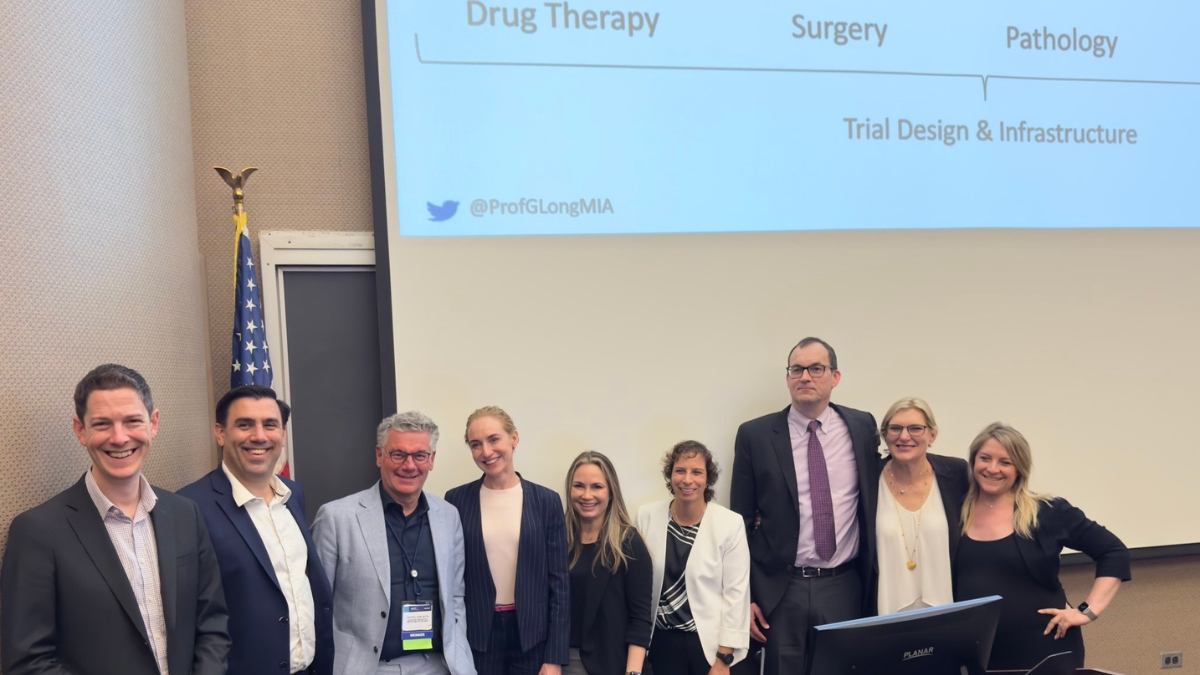
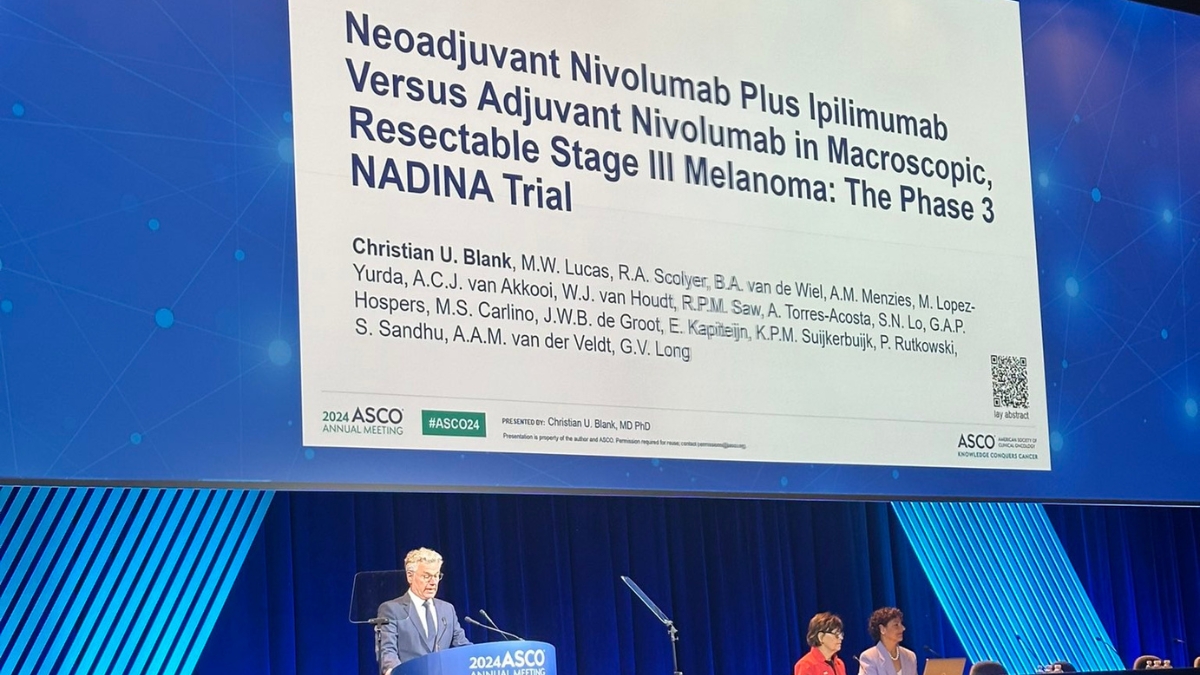

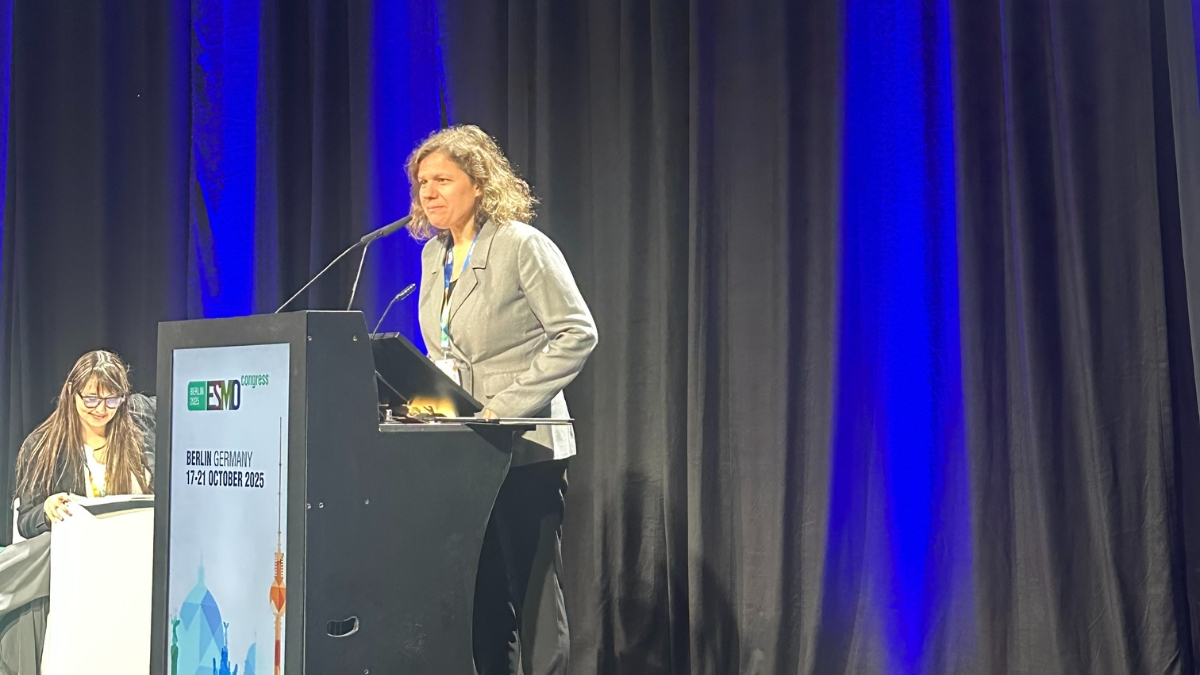
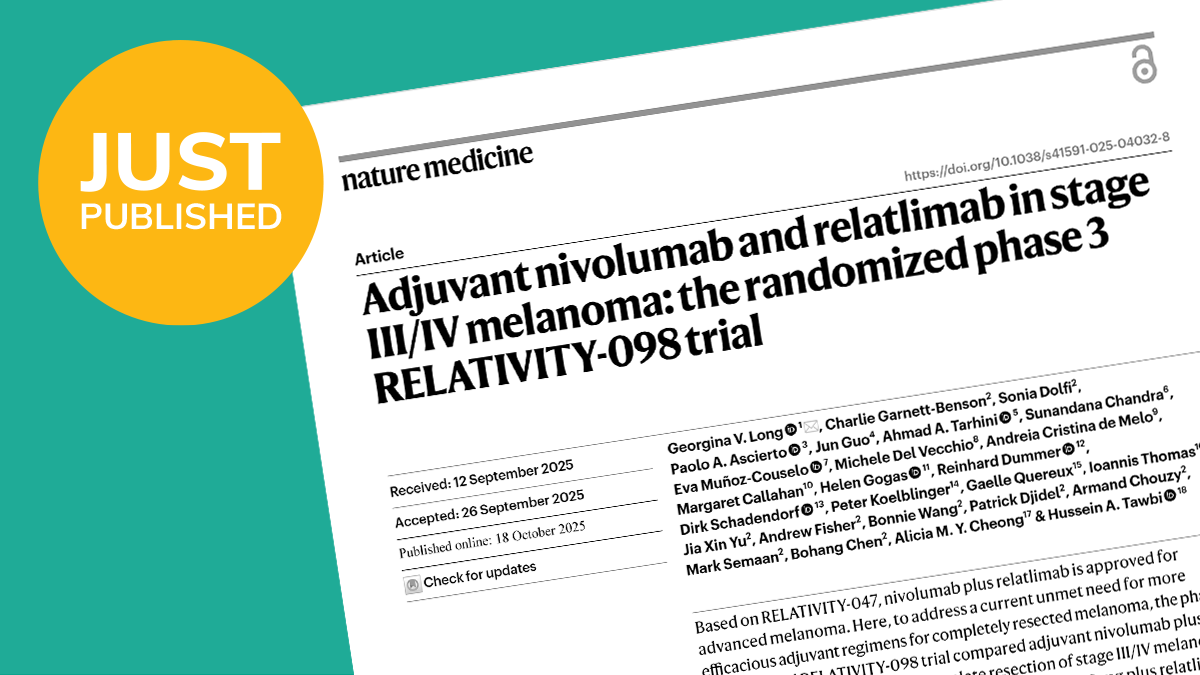
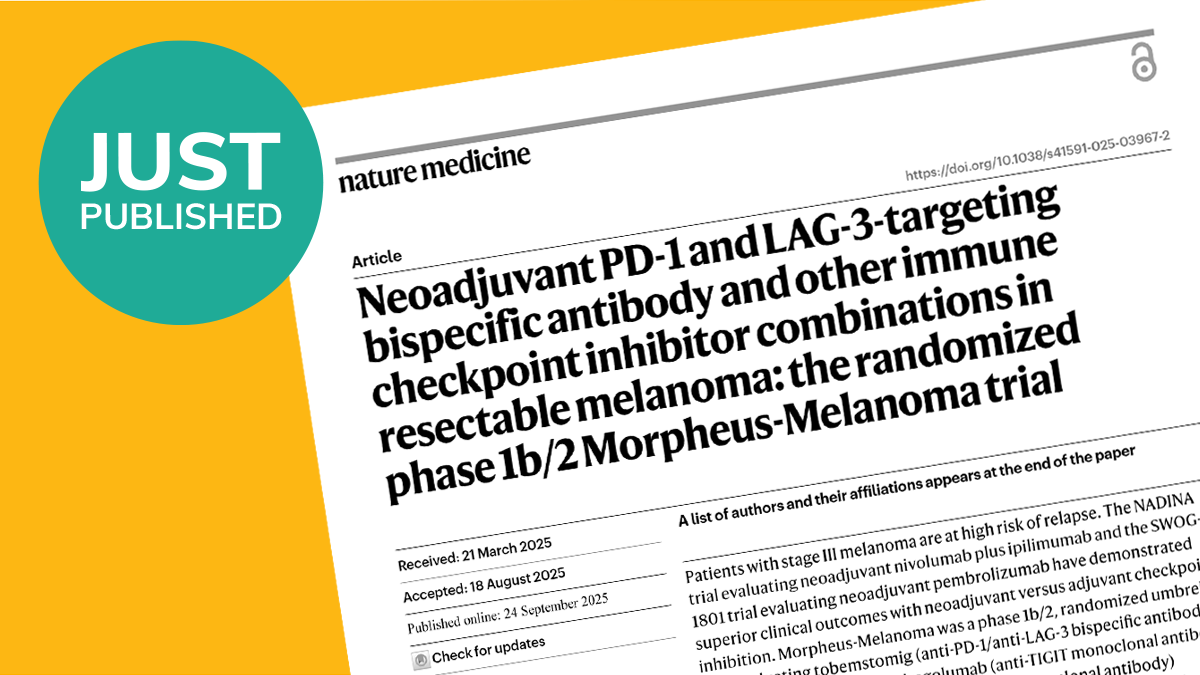
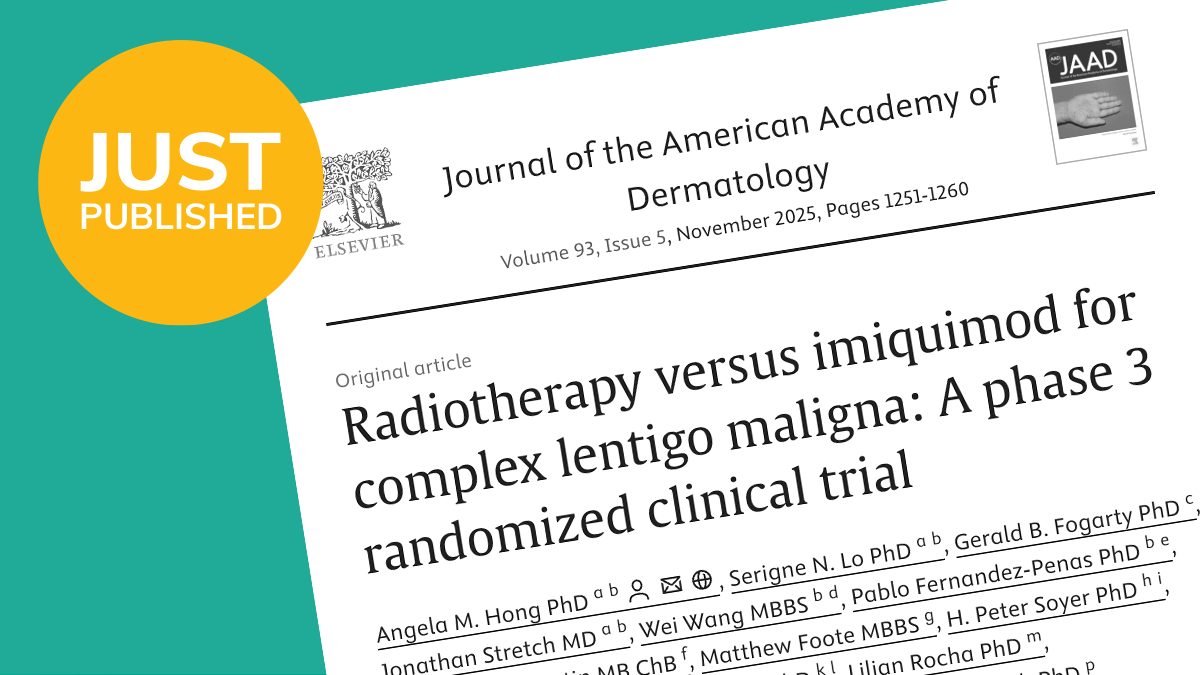
You should all be so incredibly proud!
Melanoma is in our family. I thank you for all that you do to improve our life journeys.
I have just been told i have 5 melanomas to be removed. My father died of melanoma some years ago .
So I thank you sincerely for the research that you have been conducting. Many lives will be saved because of your work .💕